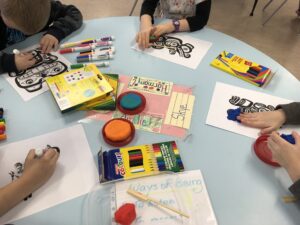
I have learnt that assessment can be changed at any point in the process. It was interesting to me as I had a different understanding of creating assessments. I thought that educators had one form of assessing every student and they would not change it. However, after class activities and discussion, I have changed my mind. Right now, I think that assessment is reflexive and adaptive; educators should be open to adapt their assessment depending on the student.
Although, I was left with a couple of questions to do with assessing students; for example: what happens if a student is struggling? In my opinion, if a student is struggling, educators should step back, reflect and redirect the learning in a different way. Assessment should be adapted to a student, as every student is unique and directly relate to the learning intentions or learning outcome. An educator should focus on student-based learning, and assessment should be adjusted depending on students’ needs.
Through assessment, students demonstrate their knowledge and skills and assessments are also used to improve teaching. Assessments must be explicit about what learners are required to do, time-efficient and manageable and include clear and explicit assessment criteria. They should provide challenges for the full range of learners being assessed. Every student is unique and requires a different approach. Now I understand that a teacher should develop a plan, however, it can be adjusted depending on students’ needs.
Educators should acknowledge that there are students that need some extra time to process the information. I agree with advocating for yourself, we should allow others to do so too. Then the students who take a little longer or struggle in the beginning will not be paying for it for the entire term. I feel like there is still such a traditional view of assessment in schools, and that’s where that old idea of “fairness” comes from. Everyone should have an equal opportunity to show their work.
Another question that I had was to do with learning and teachers’ goals. What are your students’ learning goals and how are they different from the teacher’s goals? From my understanding learning goals describe what students will know, what they can do and what they will be like after their learning. Learning goals examples include understanding a topic and being able to explain it to others. Teaching goals focuses on what teachers will do to support student’s learning. An example of teaching goals can be seen in explaining instructions or topics to students. For teaching goals to be successful they have to correlate with the learning goals. The teacher should think of how to connect students with their learning.
Construct, and recognize and understand- those are some keywords I was left with after our lessons. As an educator, you can use the help of others and plan together. Collaboration can make the development of unit and lesson plans easier. I have been always scared to ask for help and these past 2 weeks taught me that it is okay to do so. I would like to show my future students that when they will need help, it will be okay to ask for it. I want my classroom to be a safe place where students will be able to reach their student’s goals with my help.
